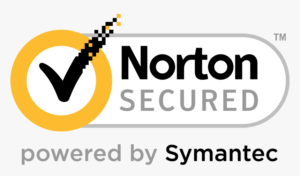The Ultimate Merchant Cash Advance Guide For Small Businesses


What Is a Merchant Cash Advance?
Small businesses can use merchant cash advances (MCA) as an alternative to conventional forms of funding, such as traditional bank loans. A merchant cash advance provider gives business owners a lump sum of money upfront and requires them to return the advance with a percentage of their sales. Businesses with a high number of credit card sales need cash rapidly, and they might not qualify for a standard loan, meaning they may benefit from an MCA.
Merchant Cash Advances are only offered to companies that accept credit cards as a form of payment. You won't be able to get an MCA if your business doesn't accept credit cards.
How Does a Merchant Cash Advance Work?
There aren't many options accessible to a small firm that finds itself in a financial bind or needs to borrow funds urgently. One of the many advantages of a merchant cash advance is exactly this. A merchant cash advance provider will provide you with an approved amount, and you'll pay it back using a percentage of your credit card purchases each day. Merchant cash advances might have high-interest rates set by a factor rate, which is simply a multiplier of the principal advance. If a company is granted a $100,000 advance and the factor rate is 1.5, the total amount to repay is $150,000 ($100,000 x 1.5). The terms of the advance would then determine the daily payment.

The applicant's sales performance largely determines the factor rate. Simply speaking, higher-income numbers can help the applicant get a better deal with a lower factor rate. Due to the minimum credit standards for merchant cash advances, applicants with poor personal credit or shaky business credit profiles can compensate with solid sales numbers.
Difference Between Business Loans and Merchant Cash Advances
A merchant cash advance is not a company loan but a cash advance based on your credit card receipt volume. The financing provider is repaid by deducting a percentage of your daily credit card sales. With very little documentation, the approval process is fast, and you may usually get accepted in a day or two. However, you'll almost certainly pay a higher interest rate for this convenience. Because this option is more expensive than others, it's an excellent approach to take advantage of a short-term opportunity that demands quick cash. Still, it can quickly become prohibitively expensive if you need money to get out of a financial problem. It's not recommended you fall into the habit of relying on merchant cash advances because their increased costs can make managing future cash flow harder.
What Is Holdback?
The word "holdback” —also called retrieval rate— is arguably the least familiar in the context of an MCA. The proportion of daily sales through credit card payments applied to your advance is the holdback amount. The holdback percentage (typically between 10% and 20%) is usually fixed until the advance is fully repaid.
Paying back a cash advance does not involve monthly payments. Instead, because the payback is calculated as a fixed percentage of the daily card sales, the more credit card transactions a company makes, the faster it may repay the advance. In addition, if sales are lower than projected, it may increase the time it takes to clear.
Difference Between Holdback Amount and Interest Rate
To understand better the world of the merchant cash advance, you’ll have to know the difference between holdback amount and interest rate, and here’s some input on it:
Merchant Cash Advance Terms And Features
Getting a merchant cash advance is fast, easy, and straightforward, and filling out an application takes only a few minutes. You can get cash considerably faster with swift approvals than you can with other types of finance, such as short-term or long-term loans.
A principal amount, a payment duration, a payment frequency (typically daily), as well as a factor rate, and a holdback percentage deduction of your daily credit card sales—including future sales— will all be included in each merchant cash advance.

Speak To A Loan
Specialist Now!
How To Qualify For a Merchant Cash Advance?
Working with a merchant cash advance may be as simple as qualifying. Unlike most other company finance options, applicants do not need to have been in business for a certain number of years to qualify, making it a viable option for businesses with only a few months of starting. The volume and number of credit card transactions are more important than a company's credit profile. Substantial sales numbers can help a company with bad credit qualify for a merchant cash advance with less attention on personal and business credit information.
Most suppliers provide online applications, which makes the already rapid process easier for business owners.
How To Apply For a Merchant Cash Advance?
The application process is uncomplicated and straightforward, but you must be able to show that you have a stable monthly volume of credit card sales of at least $4,500. Because of the fixed repayment percentage in the form of holdback rates, you'll want to think about your cash flow and whether you can handle losing a certain percentage of future card sales.
Merchant Cash Advance Repayment Terms
The repayment period is usually three to twelve months; the larger your credit card sales volume, the sooner you'll be able to return the merchant cash advance. Remember that the repayment terms do not include fixed monthly payments but rather a percentage of credit card sales, and they can be daily or monthly credit card sales, for that matter.
Percentage of Future Credit Card Sales
Until the agreed-upon amount is repaid in full, the merchant cash advance provider deducts a percentage of your credit or debit card sales automatically. Let's imagine you need $50,000 to replace an essential part of your business. You apply for and are authorized for a $50,000 merchant cash advance. Thus, you owe $70,000 since the provider allocated a factor fee of 1.4 to the contract. As mentioned earlier, you will clear your $70K balance using a set percentage of future credit card receipts.
Fixed Daily Withdrawals
This type of contract specifies a set percentage of all future card sales. Based on a ten percent proportion of sales, a company with $1,000 in daily card income would keep $900 as normal, with $100 taken by the lender for repayment.
Can You Get a Merchant Cash Advance With Bad Credit?
The main benefit of a merchant cash advance is that firms can use it with weak credit or little credit history. Furthermore, this sort of financing usually does not necessitate the use of collateral. It's a type of short-term financing where you will typically receive your merchant cash advance funds sooner than you would with another kind of funding.
Get the capital you need to allow
your business to grow, today!
Can You Get Out Of a Merchant Cash Advance?
Suppose you chose an MCA due to poor credit history, and it becomes clear that the cash flow burden of servicing the advance is too much for your business to bear. However, if you provide evidence of your struggle, the MCA lender may agree to reduce the daily repayment amount.
Applying for a second MCA to pay off the first can quickly become costly, and it may not be the best strategy to decrease your obligations from the first. You may be able to renegotiate a discounted balance if you can clear it with a one-off repayment.
A traditional loan for a small company is the most cost-effective approach to refinance a merchant cash advance. The interest rates usually are far lower than a cash advance if you qualify, and the terms are often more beneficial. To be eligible for a conventional loan, you'll need a personal credit score of at least 650 (the minimum to apply for an SBA loan) and an excellent business credit history. Most traditional institutions require a minimum personal credit score of 680.
Is a Merchant Cash Advance Right For Your Business?
A merchant cash advance can help you get cash quickly, but if you're not careful, it can put your cash flow in peril. Although many factors make a merchant cash advance appealing to a business with a poor credit history, businesses might use this type of financing to supplement a short or immediate-term cash flow crunch in the immediate term. But, ideal use for a merchant cash advance is to fund a short-term opportunity to generate additional ROI on a project—such as the purchase of quick-turnaround inventory.
Businesses that are most successful at leveraging an MCA are borrowing to supplement some form of ROI-generating activity, are highly aware of the expenses, and understand how those costs relate to the possible ROI gain. If this sounds like you, a merchant cash advance can be a suitable fit for your company.

Best Uses For a Merchant Cash Advance
Because an MCA can generally be accessed promptly by a qualifying business owner, it might be a helpful alternative for a business owner who needs immediate cash, or working capital, to cover some of the following uses cases:
Temporary cash flow assistance
Buying inventory at a significant discount
Unexpected costs
Taking care of other pending debts
An MCA will allow you to get in and out of financing rapidly if you have the cash flow and credit card revenues to sustain the average daily debit from your merchant account or business bank account.
Pros Of Merchant Cash Advances
Merchant Cash Advances Are Fast
You can usually acquire an MCA in a week or less if you don't have a lot of paperwork. Merchant cash advance providers examine a company's daily credit card receipts to see if the owner can repay.
Physical Collateral Isn’t Required
Because MCAs are unsecured, no physical collateral is required. This means you won't have to put up business assets as collateral for your loan or risk losing those assets if you can't pay them back. On the other hand, the MCA provider would almost certainly want a personal guarantee, which is a legal agreement that holds you personally liable for repaying the cash advance. In this case, the MCA provider may be able to reclaim any losses if you cannot pay.
Your Payment Depends On Your Sales
Repayments adjust depending on how well your business performs when the repayment plan is based on a fixed proportion of your revenue.
Perfect Credit Is Not Required
Some firms have a rocky start and suffer from poor credit. As a result, a traditional lender will be unlikely to approve a loan. The purpose of applying for an MCA is to help them regain their footing. Perfect credit is not required for MCAs, and instead, you will be asked only for your credit card processing bank statements to review your daily and monthly credit card sales volume. Even so, the majority of lenders will require you to have a specific credit score to qualify for a loan.
Cons of Merchant Cash Advances
Your True Cost or APR Could Skyrocket
The annual percentage rate for MCAs depends on several factors. It can depend on the lender, the size of the cash advance, any additional fees (like administration or origination fees), how long it takes to repay the advance in total, and the strength of the business's credit card sales. Taking all of these into account, the ARP for an MCA might range from about 40% to 350%. This is much more expensive than traditional bank loans, which normally have APRs of 10% or less; small-business loans from an online lender, which have APRs ranging from 8% to 99 percent; and business credit cards, which have APRs ranging from 12.9 percent to 29.9%.
Your APR Grows With Your Sales
The APR for MCAs reimbursed with a percentage of credit card sales is determined by the total fees paid and the speed with which you repay the loan. If your sales are slow, your payments will be spread out over a more extended period, lowering your APR.

If you're making a lot of credit card sales, you'll be able to pay off the MCA faster, which will raise your APR. For example, the lender might offer you a $100,000 advance with a factor rate of 1.3, resulting in a $130,000 total repayment. The APR would be at least 60% if you paid it off in just six months. If you pay it back in 12 months, the APR will be at least 30%.
There Is No Incentive To Repay Early
Early repayment does not save you money on interest because you must pay a certain fee regardless of what happens. This contrasts with a standard "amortizing" small-business loan, where early repayment results in lower interest payments. It also implies that if you refinance, you'll have to pay all of the agreed-upon expenses, as well as a penalty for paying off your loan early.
Get the Capital you need to allow
your business to grow, today!
They Are Not Subject To Federal Oversight
Because merchant cash advances are organized as commercial transactions rather than loans, they are not subject to federal regulations. According to research by First Data, they are regulated under the Uniform Commercial Code in each state, rather than banking laws like the Truth in Lending Act.
It Can Put You In a Debt Cycle
MCAs can trap you in a debt cycle because of their quickness and convenience, especially if you don't qualify for other sorts of business financing. Due to the high fees and frequency of repayments of MCAs—which can generate cash-flow problems— borrowers may end up in need of another advance quickly after taking out their first. For example, a daily payment of hundreds of dollars could burden many small businesses’ cash flow and put them in danger of default.
Contracts Can Be Very Complex
A merchant cash advance contract is an agreement in which a lender promises to provide a cash advance; this is in exchange for a percentage of the business's future revenues. The borrower also agrees to pay a charge, which is usually a fixed factoring rate. The fee and the lender's collection tactics are specified in the contract, which of course, can be highly complex.
Limitations On Business Operations
Another disadvantage of obtaining a merchant cash advance is that "small print" may restrict your operation while repaying your debt.
Be aware of wording that prevents the business from switching credit card processing processors—it is a standard limitation. Moving sites or changing hours of operation are examples of banned modifications.
Consider

Alternatives to Applying For A Merchant Cash Advance
A merchant cash advance is only one of several funding options available to a small business, even if it has a poor credit history. Here are a few of the additional possibilities:
Online Small Business Loan
Many internet lenders provide short- and long-term business loans that can help a small firm grow. Varying lenders have different credit requirements, so you still have options even if your company doesn't qualify for an SBA or a bank loan.
Business Cash Advance
It differs from a merchant cash advance in that it is dependent on your cash flow, has a fixed payment (a daily or weekly repayment, depending on the lender), and will almost certainly have a lower interest rate.
Factoring
Although factoring is not a small company loan, it is a practical strategy to obtain short-term financing by selling your accounts receivables at a discount to access cash now rather than waiting for your customers to pay their invoices.
Accounts Receivable Financing
AR financing, unlike factoring, is a loan backed by the value of your receivables. A lender will usually disclose your loan payment history to the appropriate business credit agencies, which means that your good credit habits will help you build your business credit profile while also allowing you to borrow money.
FAQ
We hope this basic guide has helped you understand more about the merchant cash advance companies and given you a general idea of the situations you may face regarding this subject. Quick Capital Funding is willing to guide you in the right direction of getting the loan you deserve. Please feel free to contact us for more advice and information.
Quick Capital Funding is willing to guide you in the right direction of getting the loan you deserve.



